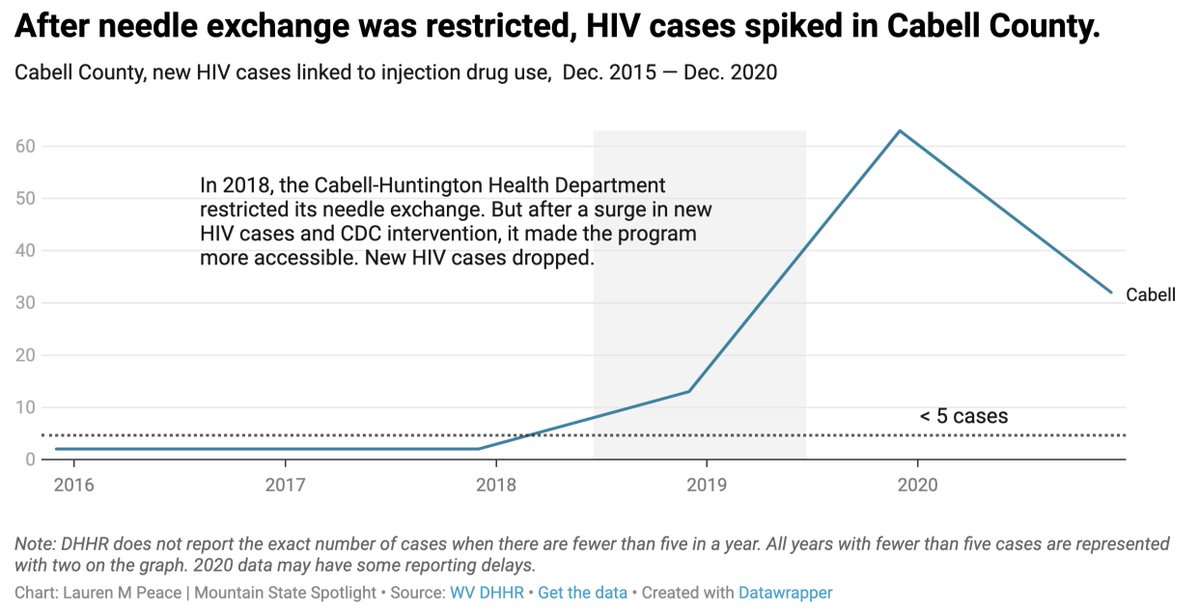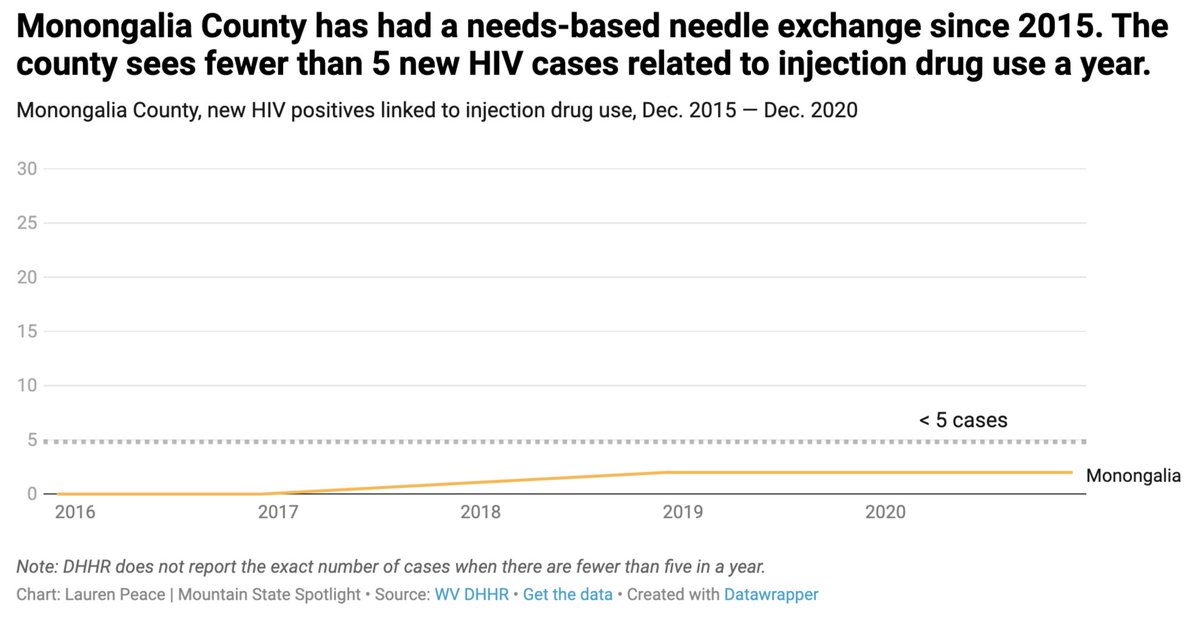THREAD:
When West Virginia's capital city eliminated its needle exchange, experts forewarned of an HIV crisis. Now it's here.
This story — although long — is one I really hope you'll read start to finish.
cc: @mtnstspotlight @Report4America @GroundTruth https://mountainstatespotlight.org/2020/12/15/when-a-west-virginia-county-eliminated-its-needle-exchange-experts-forewarned-of-an-hiv-crisis-now-its-here/
When West Virginia's capital city eliminated its needle exchange, experts forewarned of an HIV crisis. Now it's here.
This story — although long — is one I really hope you'll read start to finish.
cc: @mtnstspotlight @Report4America @GroundTruth https://mountainstatespotlight.org/2020/12/15/when-a-west-virginia-county-eliminated-its-needle-exchange-experts-forewarned-of-an-hiv-crisis-now-its-here/
For decades, supplying people who inject drugs with clean needles has been proven a necessary practice in preventive medicine. Science has shown that syringe access programs prevent the spread of infectious diseases like Hepatitis C and HIV, and do not increase drug use.
But Charleston eliminated its program in 2018. Now, people who inject drugs are sharing dirty needles b/c they don't have the means to access sterile ones. HIV + Hep C are spreading like wildfire. Experts have warned this would happen for years, now real-time data backs them up.
For months, I reported on a grassroots harm reduction program operated by a Charleston nonprofit that's working to address the need. I spent evenings in parking lots — in sunshine and pouring rain — talking with people who rely on this group for access to clean needles.
Then, in the middle of my reporting, Charleston Police opened an investigation into the group on the grounds that syringe distribution violated city law. The nonprofit suspended its services. Again, people were left without safe injection supplies. I recorded the impact.
But none of this is new. We've seen the cause and effect of the elimination of needle exchanges in our state before.
Take Cabell County— which restricted its syringe access program in 2018. The result was a spike in HIV. When restrictions were loosened, new cases dropped.
Take Cabell County— which restricted its syringe access program in 2018. The result was a spike in HIV. When restrictions were loosened, new cases dropped.
There are success stories in our state, too. Monongalia County has a needs-based syringe access program — meaning there are no restrictions in place — and fewer than five cases of HIV linked to injection drug use are reported a year. From 2013 to 2016, there wasn’t a single case.
In Charleston, however, HIV rates are rising and needles remain an unrelentingly stigmatized and misunderstood tool to address the crisis...
To date, despite decades of research, govt. reports + dozens of articles (many by @3littleredbones) projecting the crisis the city’s now facing, no consequential govt. action has been taken to increase accessibility to clean needles + protect the community from the spread of HIV.
And the grassroots program that was acting to fill the massive gap, is facing threat of elimination.
In covering health care, I've learned that its often easy to identify problems. The solution can be more difficult. A lot of issues in public health don’t have simple fixes. There’s crazy cost involved. Or the system in place is so complex, there is no straightforward answer.
But this story is different.
There is an answer, science has supported it for 30+ years, and its implementation would save both lives and money. Now, the question becomes, will the government act? Will it support the grassroots program? Will it implement its own? Or do nothing.
There is an answer, science has supported it for 30+ years, and its implementation would save both lives and money. Now, the question becomes, will the government act? Will it support the grassroots program? Will it implement its own? Or do nothing.
This story is rooted in months of interviews, data collection, and backgrounding. It’s about the politics that led to a preventable HIV spike in our capital city. It’s about a scrappy organization going against the grain. And — as always — it’s about the people most impacted.

 Read on Twitter
Read on Twitter




